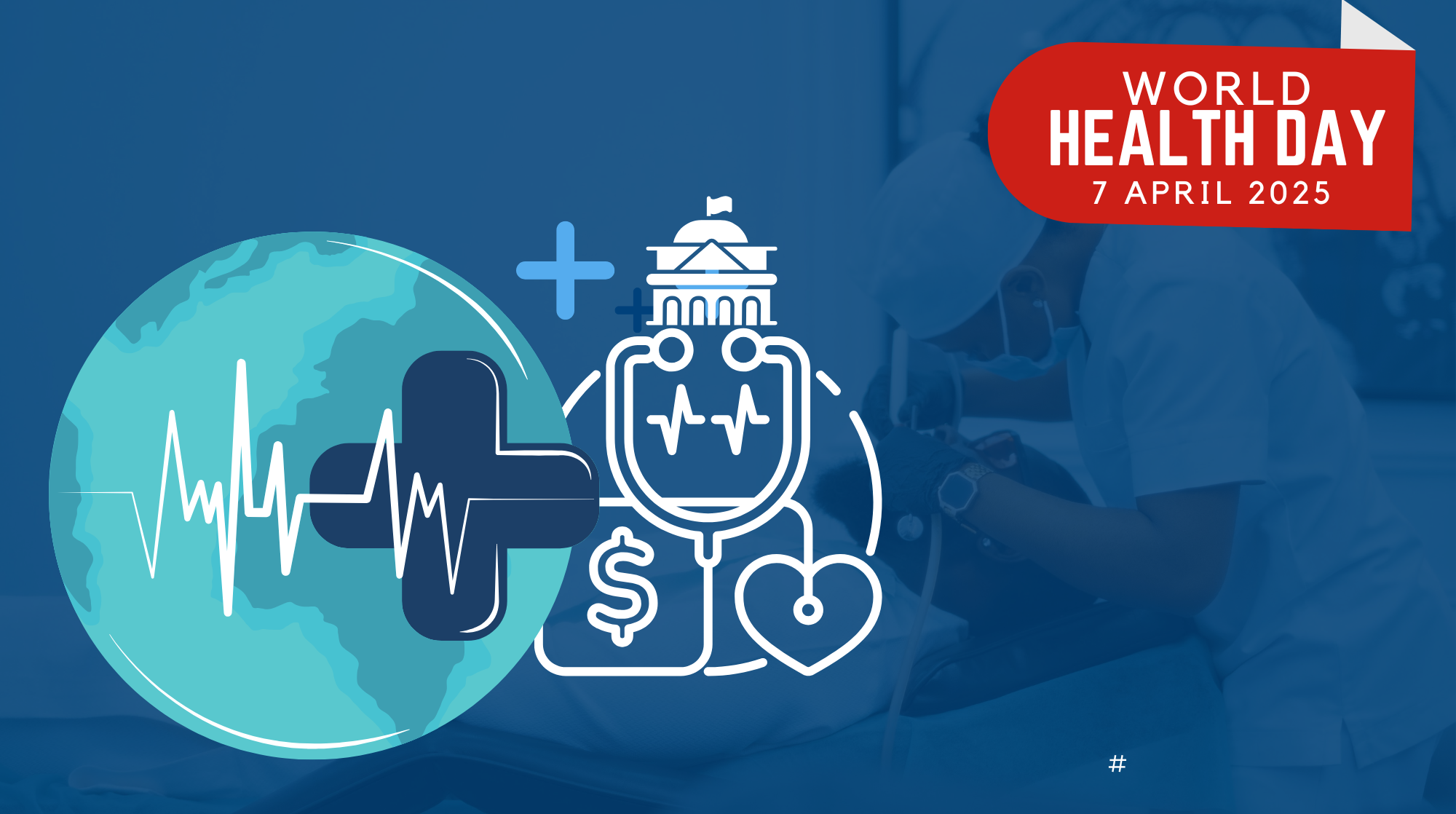Blogs

World Health Day 2025, themed “Healthy Beginnings, Hopeful Futures,” presents a timely opportunity to reflect on pressing challenges and chart a path toward a more resilient and inclusive African health system. The theme reinforces the importance of laying strong healthcare foundations from the earliest stages of life—ensuring that every child is born into a system that guarantees quality maternal care, essential immunisations, and proper nutrition. However, achieving these goals remains challenging as systematic underfunding continues to plague Africa’s health sector. Many governments fall short of allocating the necessary resources to sustain and expand health services, making it difficult to effectively respond to persistent and emerging health challenges.
A healthy society is the foundation of a thriving economy and sustainable development. When people are healthy, they can work, innovate, and contribute meaningfully to their communities. Children can attend school without the setbacks of preventable illnesses, and families can invest in their futures rather than being trapped in cycles of medical debt. However, for many African countries, universal health coverage remains a distant aspiration rather than an achievable reality. Millions still struggle to access essential healthcare services, and those who do often encounter overburdened health facilities, shortages of medical supplies, and a critical lack of skilled health professionals.
Africa’s health challenges: a crisis of underinvestment
Despite notable progress in healthcare over the past decades, Africa continues to face significant health challenges that threaten its population’s well-being and the continent’s development. The burden of disease remains disproportionately high, with both communicable and non-communicable diseases exerting immense pressure on already strained health systems. Malaria, tuberculosis, and HIV/AIDS remain deadly in Africa due to uneven access to prevention, diagnosis, and treatment. Meanwhile, non-communicable diseases like hypertension, diabetes, and cardiovascular conditions are rising, driven by urbanisation and lifestyle changes.
In addition to the rising disease burden, maternal and child health remains a critical challenge. Many women still lack access to quality antenatal care and skilled birth attendants, putting both mothers and newborns at risk. While some progress has been made, inadequate postnatal services have left millions of mothers and newborns vulnerable to preventable health risks. A major underlying factor contributing to these persistent health challenges is the fragility of Africa’s healthcare infrastructure. Rural areas are particularly disadvantaged, with communities often traveling long distances to access essential healthcare services.
Financial shortfall weakens health systems, limiting their ability to respond effectively to disease outbreaks, improve service delivery, and invest in preventive healthcare. While external donor funding has been beneficial, it remains unsustainable in the long term, as seen in recent funding withdrawals that have disrupted critical health programmes. Without sustainable domestic investments, Africa’s health systems will continue to struggle, putting future generations at risk.
Funding gap in Africa’s health sector
One of the biggest impediments to Africa’s health progress is the lack of sustainable domestic financing. Even though international donors, including USAID, the Global Fund, and the World Bank, have contributed significantly to Africa’s health sector, reliance on external funding is proving unsustainable. The recent pullout of donor funding from several health programmes highlights the urgent need for African governments to invest more domestic resources in their healthcare systems. AFIDEP’s 2023 analysis on Domestic General Government Health Expenditure (GGHE-D) as % Current Health Expenditure (CHE) shows Eswatini and Lesotho as the only countries surpassing 50%. The data also indicates Lesotho and South Africa are the only countries that have surpassed 5% of domestic general government health expenditure as % of gross domestic product (GDP). Similarly, only three countries—Rwanda, Botswana, and Cabo Verde—have consistently met or exceeded the Abuja declaration to allocate at least 15% of national budgets to the health sector (WHO, 2023). In contrast, over 30 AU member states remain well below the 10% benchmark, with some allocating as little as 5–7% of their national budgets to health (AUDA-NEPAD, 2025). This underinvestment leaves millions vulnerable and undermines long-term health system resilience.
The urgent need for domestic health financing
The withdrawal of major international donors underscores the critical need for African countries to prioritise domestic health financing. Low domestic investment leaves health systems vulnerable to disruptions when donor funds decrease. Governments must develop strategies for sustainable health financing, including increasing budgetary allocations, implementing innovative financing mechanisms, and strengthening public-private partnerships. With Africa’s population expected to double by 2050, ensuring adequate health investments today is crucial for securing a healthier and more resilient future. Investing in healthcare from the earliest stages of life is a fundamental step toward breaking the cycle of poverty and disease.
Conclusion
World Health Day 2025 serves as a call for African countries to take charge of their health systems by prioritising sustainable financing, evidence-based policymaking, and research-driven solutions. Data and strategic investments are critical to driving Africa toward universal health coverage and ensuring that strong healthcare foundations translate into long-term well-being for all. African leaders must move beyond dependence on external donors and build resilient health systems that serve citizens.
As part of this transformation, the African Institute for Development Policy (AFIDEP) and the Partners in Population and Development Africa Regional Office (PPD ARO) are implementing the Advance Domestic Health Financing (Advance Domestic) project in Malawi, Kenya, Zambia, and Uganda. The project supports governments in mobilising more domestic resources for health through the generation, synthesis, and translation of evidence for effective policymaking. It also strengthens accountability and advocacy mechanisms to reduce inefficiencies in health spending. This World Health Day, AFIDEP reaffirms its commitment to supporting African countries on their journey to UHC by anchoring reforms in locally generated evidence and stakeholder engagement.

